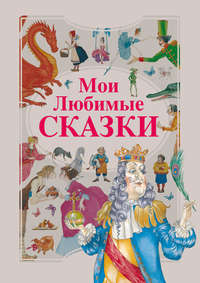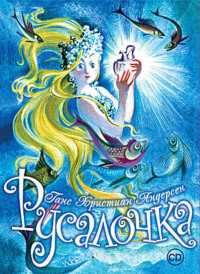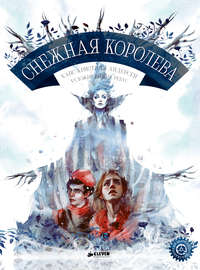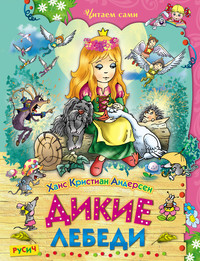 полная версия
полная версияO. T., A Danish Romance
“Everything you desire!” said Otto.
“Do not speak of it!” returned Sophie, and laid her finger on her lips. The mother descended the steps.
“Dear Thostrup!” said she, and pressed, with warm cordiality, both his hands. “I have really quite yearned after you. Now Wilhelm is away, you must for two whole days put up with us alone.”
Otto went through the long passage where hung the old portraits; it was as if these also wished welcome. It only seemed a night full of many dreams which had passed since he was here; a year in the lapse of time is also not so long as a winter’s night in the life of man.
Here it was so agreeable, so home-like; no one could have seen by the trees that since then they had stood stripped of leaves and covered with snow; luxuriantly green they waved themselves in the sun’s warmth, just as when Otto last gazed out of this window.
He had the red room as before. The dinner-bell rang.
Louise met him in the passage.
“Thostrup!” exclaimed she, with delight, and seized his hand. “Now, it is almost a year and a day since I saw you!”
“Yes much has happened in this year!” said the Kammerjunker. “Come soon to me, and you shall see what I have had made for pastime—a bowling-green! Miss Sophie has tried her skill upon it.”
The Kammerjunker took the mother to dinner. Otto approached Sophie.
“Will you not take the Kammerjunker’s sister?” whispered she.
Mechanically, Otto made his bow before Miss Jakoba.
“Take one of the young ladies!” said she; “you would rather do that?”
Otto bowed, cast a glance toward Sophie; she had the old pastor. Otto smiled, and conducted Jakoba to table.
The Mamsell, renowned through her work-box, sat on his left hand. He observed the company who, beside those we have already mentioned, consisted of several ladies and gentlemen whom he did not know. One chair was empty, but it was soon occupied; a young girl, quiet in her attire, and dressed like Louise, entered.
“Why do you come so late?” asked Sophie, smiling.
“That is only known to Eva and me!” said Louise, and smiled at the young girl.
Eva seated herself. It was, perhaps, the complete resemblance of their dress which induced Otto to observe both her and Louise so closely, and even against his own will to draw comparisons. Both wore a simple dark brown dress, a small sea-green handkerchief round the neck. Louise seemed to him enchanting—pretty one could not call her: Eva, on the contrary, was ideal; there lay something in her appearance which made him think of the pale pink hyacinth. Every human being has his invisible angel, says the mythos; both are different and yet resemble each other. Eva was the angel; Louise, on the contrary, the human being in all its purity. Otto’s eyes encountered those of Sophie—they were both directed to the same point. “What power! what beauty!” thought he. Her mind is far above that of Louise, and in beauty she is a gorgeous flower, and not, like Eva, a fine, delicate hyacinth. He drew eloquence from these eyes, and became interesting like the cousin, although he had not been in Paris.
The Kammerjunker spoke of sucking-pigs, but that also was interesting; perhaps be drew his inspiration out of the same source as Otto. He spoke of the power of green buckwheat, and how the swine which eat it become mad. From this doubtless originated the legend of the devil entering into the swine. It is only coal-black pigs which can digest green buckwheat; if they have a single white speck upon them, they become ill at eating. “This is extraordinary,” exclaimed he.
In his enthusiasm his discourse became almost a cry, which caused Miss Jakoba to say that one might almost think that he himself had eaten green buckwheat.
Otto meantime cut out of the green melon-peel a man, and made him ride on the edge of his glass; that withdrew Sophie’s attention from the Kammerjunker. The whole company found that this little cut-out figure was very pretty; and the Mamsell begged that she might have it—it should lie in her work-box.
Toward evening all were in preparation for the approaching tableaux.
Eva must represent Hero. With a torch in her hand she must kneel on a table, which was to be draped so as to represent a balcony. The poor girl felt quite unhappy at having to appear in this manner. Sophie laughed at her fear, and assured her that she would be admired, and that therefore she must and should.
“Give way to my sister,” said Louise, in a beseeching voice; and Eva was ready, let down her long brown hair, and allowed Sophie to arrange the drapery.
Otto must put on an officer’s uniform. He presented himself to the sisters.
“That gold is not sewn fast on the collar,” said Sophie, and undertook to rectify it. He could easily keep the uniform on whilst she did this, said she. Her soft hand touched Otto’s cheek, it was like an electric shock to him; his blood burned; how much he longed to press the hand to his lips!
They all burst out laughing when the Kammerjunker appeared in a white petticoat which only reached a little below the knee, and in a large white lady’s dressing-jacket. Miss Sophie must arrange his hair. She did it charmingly; her hand stroked the hair away from his brow, and glided over his cheeks: he kissed it; she struck him in the face, and begged him not to forget himself! “We are ladies,” said he, and rose in his full splendor. They all laughed except Otto; he could not—he felt a desire to beat him. The spectators arranged themselves in a dark room, the folding doors were opened.
Eva as Hero, in a white linen robe, her hair hanging down on her shoulders, and a torch in her hand, gazed out over the sea. No painter could have imagined anything more beautiful; the large dark-blue eyes expressed tenderness and melancholy; it was Eva’s natural glance, but here you saw her quiet. The fine black eyebrows increased the expression, the whole figure was as if breathed into the picture.
Now followed a new picture—Faust and Margaret in the arbor; behind stood Mephistophiles, with his devilish smile. The Kammerjunker’s Mamsell was Margaret. When the doors were opened she sent forth aloud cry, and ran away; she would not stay, she was so afraid. The group was disarranged, people laughed and found it amusing, but the Kammerjunker scolded aloud, and swore that she should come in again; at that the laughter of the spectators increased, and was not lessened when the Kammerjunker, forgetting his costume as the Somnambule, half stepped into the frame in which the pictures were represented, and seated the Mamsell on the bench. This group was only seen for one moment: the dorors were again closed; the spectators applauded, but a whistle was heard. Laughter, and the hum of conversation, resounded through the room; and it was impossible to obtain perfect quiet, although a new picture already shone in the frame. It was Sophie as Correggio’s “Magdalene”: her rich hair fell in waves over her shoulders and round arms; before her lay the skull and the holy book.
Otto’s blood flowed faster; never had he seen Sophie more beautiful. The audience, however, could not entirely forget the comic scene which they had just witnessed; there was heard a faint suppressed laughter.
This at length was able to take its free course when the following picture presented itself, where the Kammerjunker, as the Somnambule, his hand half-concealing the extinguished light, showed himself at the open window.
A most stormy burst of applause was awarded to the actors.
“Miss Sophie has arranged the whole!” cried the Kammerjunker, and now her name sounded from the lips of all the audience.
Not before two days did Wilhelm return. He and Otto slept in the same apartment. Otto told of the tableaux, and said how lovely Eva had been as Hero.
“That I can well believe,” replied Wilhelm, but did not enter further into the subject; he laughed about the Kammerjunker and the disarranged group.
Otto again named Eva, but Wilhelm lightly passed over this subject in his replies. Otto could not fathom their connection.
“Shall we not go to sleep?” said Wilhelm; they wished each other good-night, and it was quiet.
The old man Sleep, as Tieck has described him, with the box out of which he brings his dream-puppets, now commenced his nightly dramatic adventures, which lasted until the sun shone in through the window.
CHAPTER XXXIII
“He draws nearer and nearer to her.‘O, give my hope an answer by this pink-flower.’She sighs: ‘O, I will—no—I will not.’”The Dancer, by PALUDAN-MÜLLER“I shall get to know!” thought Otto. “This violent love cannot be evaporated.” He paid attention to every little occurrence. Eva was the same quiet, modest creature as formerly—a house-fairy who exercised a friendly influence over all. Wilhelm spoke with her, but not with passion, neither with affected indifference. However, we cannot entirely rely upon Otto’s power of observation: his glance was directed too often toward a dearer object—his attention was really directed to Sophie.
They walked in the garden.
“Once as you certainly know,” said Otto, “your brother had a fancy for the pretty Eva. Is it not, therefore, somewhat dangerous her living here? Has your mother been prudent?”
“For Wilhelm I am quite unconcerned!” answered Sophie. “Only take care of yourself! Eva is very amiable, and has very much changed for the better since she came here. My sister Louise quite raves about her, and my mother regards her almost as an adopted daughter. You have certainly remarked that she is not kept in the background. Yet she is weak; she resembles the tender mountain-flowers which grow in ice and snow, but which bow their heads in the soft mountain air, when it is warmed by the sun. It really seems to me that she is become weaker since she has enjoyed our care and happy days. When I saw her at Roeskelde she was far more blooming.”
“Perhaps she thinks of your brother—thinks of him with quiet sorrow?”
“That I do not think is the case,” replied Sophie; “otherwise Louise would have heard something of it. She possesses Eva’s entire confidence. You may make yourself easy, if you are jealous!”
“What make you conjecture this? My thoughts are directed above, and not beneath me!” said he, with a kind of pride, “I feel that I could never fall in love with Eva. Feel love toward her? no! Even when I think of it, I feel almost as though I had some prejudice against her. But you joke; you will rally me, as you have so often done. We shall soon part! Only two months longer shall I remain in Denmark! Two long years abroad! How much may occur in that time! Will you think of me—really think of me, Miss Sophie?” He bent, and kissed her hand.
Sophie became crimson. Both were silent.
“Are you here!” said the mother, who came out of a side walk.
Otto stooped lower, and broke one of the beautiful stocks which hung over the border.
“Are you taking Louise’s favorite flowers?” said she, smiling. “This bed is declared to be inviolable.”
“I was so unfortunate as to break it!” said Otto, confused.
“He wished to gather the dark-red pink for my table-garland!” said Sophie. “If he took it, my conscience would be clear!”
And they all three walked along speaking of cherries, gooseberries, of the linen on the bleaching-ground, and of the warm summer’s day.
In the evening Eva and the two sisters sat at their work, Otto and Wilhelm had taken their seats beside them. They spoke of Copenhagen.
Sophie knew how to introduce a number of little anecdotes, which she had gathered among the young ladies there. Otto entered into her ideas, and knew cleverly how to support what she said. What in reality interested young ladies was discussed.
“When a girl is confirmed, all manner of fancies awake!” said Otto. “She experiences a kind of inclination for the heart of man; but this may not be acknowledged, except for two friends to the clergyman and the physician. For these she has quite a passion, especially for the former; she stands in a kind of spiritual rapport with him. His physical amiability melts into the spiritual. Thus her first love one may designate clergyman-love.”
“That is well said!” exclaimed Sophie.
“He preaches himself so deeply into her heart!” pursued Otto. “She melts into tears, kisses his hand, and goes to church; but not for the sake of God, but on account of the sweet clergyman!”
“O, I know that so well!” said Sophie, and laughed.
“Fie! you do not mean so!” said Louise; “and I do not know how you can say such a thing Mr. Thostrup! That is frightful! You do not in the least know a young girl’s soul! do not know the pure feeling with which she inclines herself to the man who has laid open before her the holy things of religion! Do not make sport of the innocent, the pure, which is so far removed from every earthly impression!”
“I assure you,” said Otto, smiling, “were I a poet, I would make the clergyman-love ridiculous in a hundred witty epigrams; and were I a teacher, I would protest against it from the chair.”
“That would be scattering poison into a well!” said Louise. “You, as a man, do not know the pure, the holy sentiment which exists in a young girl’s bosom. Eva, thou art certainly of my opinion?”
“Neither is this Mr. Thostrup’s opinion?” answered she, and looked at him with a mild gravity.
Wilhelm laughed aloud.
CHAPTER XXXIV
“Alas, I am no sturdy oak!Alas, I’m but the flowerThat wakes the kiss of May!And when has fled its little hour,Will voice of Death obey.”—RUCKERT.The following afternoon came visitors—two young ladies from Nyborg, friends of Sophie and Louise. Before dinner they would take a walk through the wood to an inclosure where the flax was in bloom. Otto was to accompany them.
“I am also of the party!” said the Kammerjunker, who just galloped into the court-yard as the ladies, with Otto, were about setting out on their excursion. Thus the whole company consisted of five ladies and two gentlemen.
“The cows are not in the field over which we must go, are they?” asked Eva.
“No, my good girl!” returned Sophie; “you may be quite easy! Besides, we have two gentlemen with us.”
“Yes; but they would not be able to protect us from the unruly bullocks!” said Louise. “But we have nothing to fear. Where we are going the cows do not go until after they are milked. I am no heroine! Besides, it is not long since one bullock nearly gored the cowherd to death. He also gored Sidsel a great hole in her arm just lately: you remember the girl with her eyebrows grown together?”
“There is also in the wood a wild sow, with eleven sucking pigs!” said Sophie, in ironical gravity; “it would not be agree able to meet with her!”
“She is almost as dangerous as the bullocks!” said the Kammerjunker, and laughed at Eva.
The conversation took another turn.
“Shall we not visit Peter Cripple?” asked Sophie. “The gentlemen can then see the smith’s pretty daughter; she is really too beautiful to be his wife!”
“Is Peter Cripple married?” inquired Otto.
“No, the wedding will be held on Sunday!” replied the Kammerjunker; “but the bride is already in the house. The bans were published last Sunday, and they immediately commenced housekeeping together. This often takes place even earlier, when a man cannot do without a wife. She has taken him on account of his full money-bags!”
“Yes, with the peasant it is seldom love which brings about the affair!” said Louise. “Last year there was quite a young girl who married a man who might have been her grandfather. She took him only, she said, because he had such a good set of earthenware.”
“These were very brittle things to marry upon!” remarked Otto.
Meantime they were nearly come to the edge of the wood. Here stood a little house; hops hung luxuriantly over the hedge, the cat stood with bent back upon the crumbling edge of the well.
Sophie, at the head of the whole company, stepped into the room, where Peter Cripple sat on the table sewing; but, light and active as an elf, he sprang down from the table to kiss her hand. The smith’s pretty daughter was stirring something in an iron pot in the hearth. St. John’s wort, stuck between the beams and the ceiling, shot forth in luxuriant growth, prophesying long life to the inhabitants of the house. On the sooty ceiling glittered herrings’ souls, as a certain portion of the herring’s entrails is called, and which Peter Cripple, following the popular belief, had flung up to the ceiling, convinced that so long as they hung there he should be freed from the ague.
Otto took no part in the conversation, but turned over a quantity of songs which he found; they were stitched together in a piece of blue tobacco-paper. The principal contents were, “New, Melancholy Songs,” “Of the Horrible Murder,” “The Audacious Criminal,” “The Devil in Salmon Lane,” “Boat’s Fall,” and such things; which have now supplanted, among the peasants, the better old popular songs.
With Louise, Eva, and one of the ladies from Nyborg, Otto slowly preceded the others, who had still some pleasantries to say before leaving Peter Cripple and his bride.
“Shall we not go over the inclosure to the cairn?” said Louise. “It is clear to-day; we shall see Zealand. The others will follow us; here, from the foot-path, they will immediately discover us.”
Otto opened the gate and they went through the inclosure. They had already advanced a considerable way, when the Kammerjunker and his ladies reached the foot-path from which they could see the others.
“They are going to the cairn,” said he.
“Then they will have a little fright!” said Sophie. “Down in the corner of the inclosure lie the young cattle. They may easily mistake them for cows, and the wild bullocks!”
“Had we not better call them back?” asked the other lady.
“But we must frighten them a little,” said Sophie. “Shout to them that there are the cows!”
“Yes, that I can do with a clear conscience!” said the Kammerjunker; and he shouted as loud as he could, “There are the cows! Turn back! turn back!”
Eva heard it the first. “O God!” said she, “hear what they are calling to us!”
Otto glanced around, but saw no cows.
“They are standing still!” said Sophie; “call once again!”
The Kammerjunker shouted as before, and Sophie imitated the lowing of the cows. At this noise the young cattle arose.
Louise now became aware of them. “O heavens!” exclaimed she; “there, down in the corner of the inclosure, are all the cows!”
“Let us run!” cried Eva, and took to flight.
“For God’s sake, do not run!” cried Otto; “walk slowly and quietly, otherwise they may come!”
“Come away, away!” resounded from the wood.
“O Lord!” shrieked Eva, when she saw the creatures raise their tails in the air as soon as they perceived the fugitives.
“Now they are coming!” cried the lady who accompanied them, and sent forth a loud scream.
Eva fled first, as if borne by the wind; the lady followed her, and Louise ran on after them.
Otto now really saw all the cattle, which, upon the ladies flight, had instinctively followed, chasing over the field after them in the same direction.
Nothing now remained for him but, like the others, to reach the gate. This he opened, and had just closed again, when the cattle were close upon them, but no one had eyes to see whether the cattle were little or big.
“Now there is no more danger!” cried Otto, as soon as he had well closed the gate; but the ladies still fled on, passing among the trees until they reached the spot where the Kammerjunker and his two ladies awaited them with ringing laughter.
Sophie was obliged to support herself against a tree through all the amusement. It had been a most remarkable spectacle, this flight; Eva at the head, and Mr. Thostrup rushing past them to open the gate. Louise was pale as death, and her whole body trembled; the friend supported her arm and forehead on a tree, and drew a long breath.
“Bah!” again cried Sophie, and laughed.
“But where is Eva?” asked Otto, and shouted her name.
“She ran here before me!” said Louise; “she is doubtless leaning against a tree, and recovering her strength.”
“Eva!” cried Sophie. “Where is my hero: ‘I want a hero!’”26
Otto returned to seek her. At this moment Wilhelm arrived.
The Kammerjunker regretted that he had not seen the race with them, and related the whole history to him.
“O come! come!” they heard Otto shout. They found him kneeling in the high grass. Eva lay stretched out on the ground; she was as pale as death; her head rested in Otto’s lap.
“God in heaven!” cried Wilhelm, and flung himself down before her. “Eva! Eva! O, she is dead! and thou art to blame for it, Sophie! Thou hast killed her!” Reproachfully he fixed his eyes on his sister. She burst into tears, and concealed her face in her hands.
Otto ran to the peasant’s cottage and brought water. Peter Cripple himself hopped like a mountain-elf behind him through the high nettles and burdocks, which closed above and behind him again.
The Kammerjunker took Eva in his strong arms and carried her to the cottage. Wilhelm did not leave hold of her hand. The others followed in silence.
“Try and get her home,” said Wilhelm; “I myself will fetch the physician!” He rushed forth, and hastened through the wood to the ball, where he ordered the men to bring out a sedan-chair for the invalid; then had horses put into one of the lightest carriages, seated himself in it as coachman, and drove away to Nyborg, the nearest town, which, however, was distant almost twenty miles.
Sophie was inconsolable. “It is my fault!” she said, and wept.
Otto found her sitting before the house, under an elder-tree. She could not endure to see Eva’s paleness.
“You are innocent,” said Otto. “Believe me, to-morrow Eva will be completely restored! She herself,” added he, in an assuaging tone, “behaved in an imprudent manner. I warned her not to run. Her own terror is to blame for all.”
“No, no,” returned Sophie; “my folly, my extravagance, has caused the whole misfortune!”
“Now it is much better,” said the Kammerjunker, coming out of the house. “She must be devilish tender to fly before a few calves! I really must laugh when I think of it, although it did come to such an end!”
The men now arrived whom Wilhelm had sent with the sedan-chair.
Eva thought she could walk, if she might lean upon some one; but it would be better, her friends thought, if she were carried.
“Dost thou feel any pain?” asked Louise, and gave her a sisterly kiss on the brow.
“No, none at all,” replied Eva. “Do not scold me for having frightened you so. I am so fearful, and the bullock were close behind us.”
“They were, God help me, only calves!” answered the Kammerjunker; “they wished to play, and only ran because you ran!”
“It was a foolish joke of mine!” said Sophie, and seized Eva’s hand. “I am very unhappy about it!”
“O no!” said Eva, and smiled so pensively, yet happily. “To-morrow I shall be quite well again!” Her eye seemed to seek some one.
Otto understood the glance. “The physician is sent for. Wilhelm has himself driven over for him.”
Toward the middle of the wood the mother herself approached them; she was almost as pale as Eva.
All sought to calm her; Eva bowed her head to kiss the good lady’s hand. The Kammerjunker told the story to her, and she shook her head. “What an imprudent, foolish joke!” said she; “here you see the consequences!”
Not before late in the afternoon did Wilhelm return with the physician; he found his patient out of all danger, but prescribed what should still be done. Quiet and the warm summer air would do the most for her.
“See,” said Otto, when, toward evening he met Sophie in the garden, “to-day Wilhelm did not conceal his feelings!”
“I fear that you are right!” returned Sophie. “He loves Eva, and that is very unfortunate. Tell me what you know about it.”
“I know almost nothing!” said Otto, and told about little Jonas and the first meeting with Eva.
“Yes, that he has told us already himself! But do you know nothing more?” Her voice became soft, and her eyes gazed full of confidence into Otto’s.
He related to her the short conversation which he had had last autumn with Wilhelm, how angry he had been with his candid warning, and how since then they had never spoken about Eva.
“I must confide my fear to our mother!” said Sophie. “I almost now am glad that he will travel in two months, although we shall then lose you also!”









